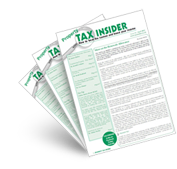How Does HMRC Know When a Property Has Been Sold?
Question
Case Study
Is the onus on the seller to report when a property has been sold or does one of the professionals i.e. lawyers, report it? I understand that there must be a registration process to allow stamp duty to be paid by the buyer but does this same process register the sale against the seller’s HMRC records? Arthur Weller Replies:HMRC can find out about sales of property from land registry records, advertising, changes in reporting of rental income, stamp duty land tax (SDLT) returns, capital gains tax (CGT) returns, bank transfers and other ways. A seller has a duty to report the sale of capital assets on the capital gains supplementary pages of the Self Assessment return if either a) after having deducted any capital losses and the CGT annual exemption (AE) (currently £10,600) there is a capital gain remaining on which CGT is due, or b) even if no CGT is due but the proceeds of the sale of the capital assets is more than four times the AE - currently 4 * 10,600 = 42,400. See the notes to the self-assessment return (there are exceptions to these rules). The SDLT1, which is the basic stamp duty land tax return, asks for the address of the property and the details of the seller. |

To enrol in the 7 tax saving strategies email course complete the form below. The first module will be emailed to you immediately.

 UK Property Tax Q&A
UK Property Tax Q&A

